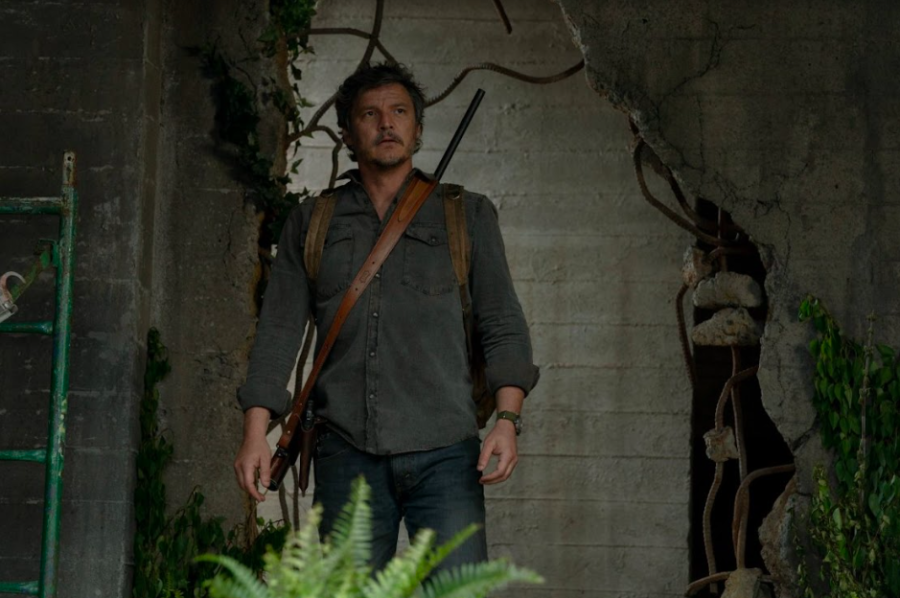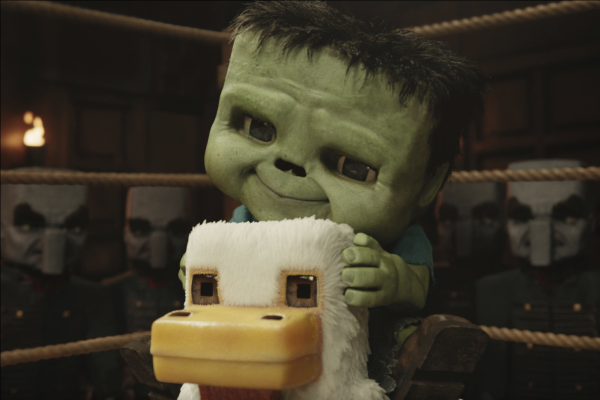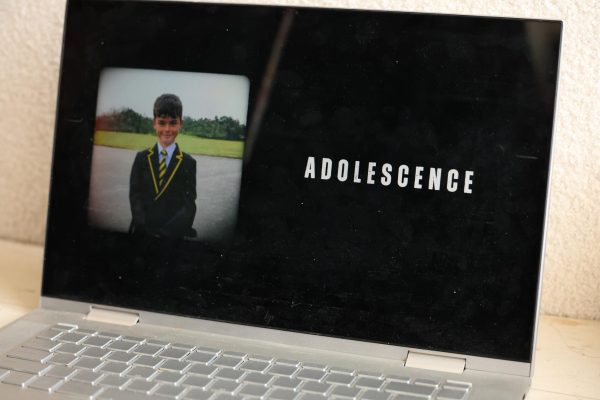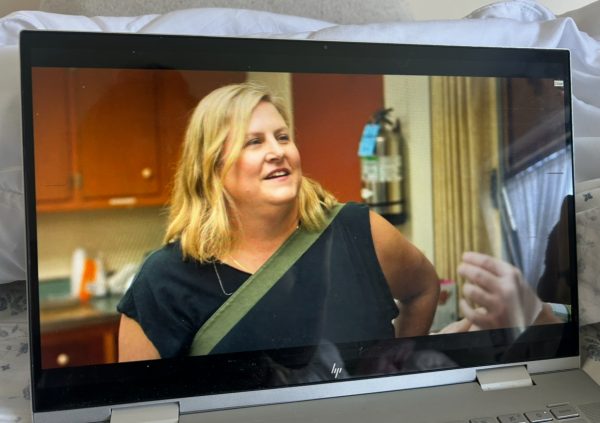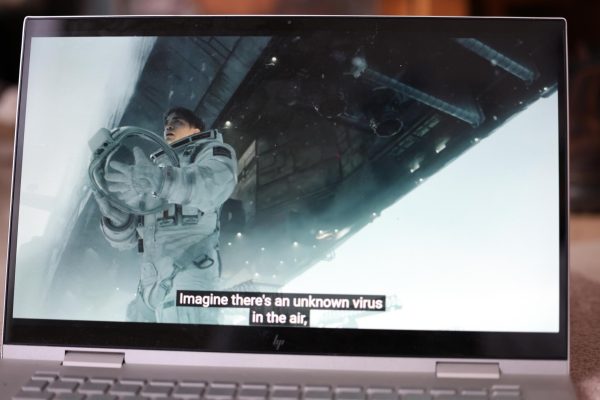“The Last of Us” is a Triumph for Video Game Adaptations
“The Last of Us” has satisfied fans of the original video game and those with an affinity for dystopian media. (Courtesy of Twitter)
In the wake of the pandemic, I had avoided post-apocalyptic fiction, feeling that it hit a tad too close to home to make for good escapism. Combining that fact with my indifference to most video games, I mostly ignored “The Last of Us” when it came out in January, despite the positive buzz surrounding the new show. In February, however, my brother strongly recommended I watch, and I delved into the story, unsure of what to expect.
I’m grateful I did. “The Last of Us” is no cheap action-horror flick; instead, its realistic portrayal of characters in a dying world makes it one of the best dramatic television series in recent memory.
“The Last of Us” is set in a dystopian America that has been decimated by a fungal infection that transforms humans into zombies. The show focuses on Joel (Pedro Pascal), a smuggler residing in Boston, who is forced to transport 14-year-old Ellie (Bella Ramsey) across the country. Along the way, they must survive the infected, a fascist government regime, rebel groups and religious cults. Based on a video game of the same name, the show has garnered praise for being one of the few video game adaptations to provide a faithful retelling that fully satisfies fans of the original material.
The first two episodes are standard post-apocalyptic fare — we’re introduced to the characters, given a glimpse into their backstories and allowed to see how the world functions. The infected (the show’s version of zombies) are pretty similar to other monsters of the same type. The reasoning behind the apocalypse — a fungal infection based on a real disease, rather than the vague zombie plague that is so often credited — is unique and interesting. For the most part, however, the first two episodes of “The Last of Us” don’t give the viewer anything they haven’t seen before.
It’s not until episode three, “Long, Long Time,” that the show really begins to shine. The episode takes place almost entirely away from our protagonists, focusing instead on two other characters living a few miles outside of Boston. Rather than the action-packed thriller you’d expect from a video game adaptation, “Long, Long Time” is an almost quiet reflection on the purpose of life when the world falls apart. Despite its deviation from the main plot, the episode is a beautifully-crafted character study, with emotional and symbolic impacts on the rest of the show. Several other episodes are more focused on what seem like side stories, independent of the show’s central quest, but each episode serves an important narrative purpose, slowly building to the show’s moral climax.
While the action and horror elements of “The Last of Us” are well done, where the show really shines are the nuanced portrayals of its central characters. Joel and Ellie’s relationship is the highlight of the show, slowly developed over the course of the season. “The Last of Us” is a master of using small talk to build character — over the course of nine episodes, we grow familiar with our protagonists not just through emotional confessions, but through small moments, making bad puns and reminiscing about the way the world used to be. Pascal and Ramsey have fantastic chemistry — while it’s no easy task to carry an entire show, both actors prove their skill through realistic portrayals of their characters.
One flaw that has been appearing more and more in modern fiction is the idea that world-ending stakes are necessary to make a gripping story. Storytellers more and more seem to think that, the more people are at risk, the more invested audiences will be. Despite the apocalyptic wasteland in which it is set and the epic quest on which the protagonists find themselves, “The Last of Us” manages to avoid this common pitfall. We root for, care for and worry about Joel and Elle not because of the fact that the world rests on their shoulders, but because we sincerely like them as characters. It’s a small thing, but how personal the characters feel goes a long way to creating tension and suspense.
The show is almost notable for the fascinating ethical dilemmas it raises, especially in the finale (Fordham students who have taken “Philosophical Ethics” will no doubt find much to discuss). “The Last of Us” spends nine episodes crafting a complex question about the good of the many versus the good of the few, and, unlike many other shows that offer similar quandaries, doesn’t take the easy way out. Going into the last episode, I was worried that “The Last of Us” would be unable to deliver a satisfying conclusion on all the plot elements that had been set up. The season finale, however, was one of the best endings of TV I have ever seen. While the show has been renewed for a second season, I would be perfectly satisfied if the show had ended there, despite some of the ambiguity contained in the ending.
Even if you’re not a big video game or action fan, “The Last of Us” is an immersive emotional drama. While the beginning few episodes are a tad predictable, as the show progresses it transforms to create an incredible character-driven story that people of all tastes can enjoy. Whether you like video games, dystopias or you’re just a fan of quality television, “The Last of Us” should be the latest addition on your “to-watch” list.

Michael Sluck is a senior from New Jersey majoring in political science and computer science. He has been copy editing for The Fordham Ram for the entirety...



































































































































































































